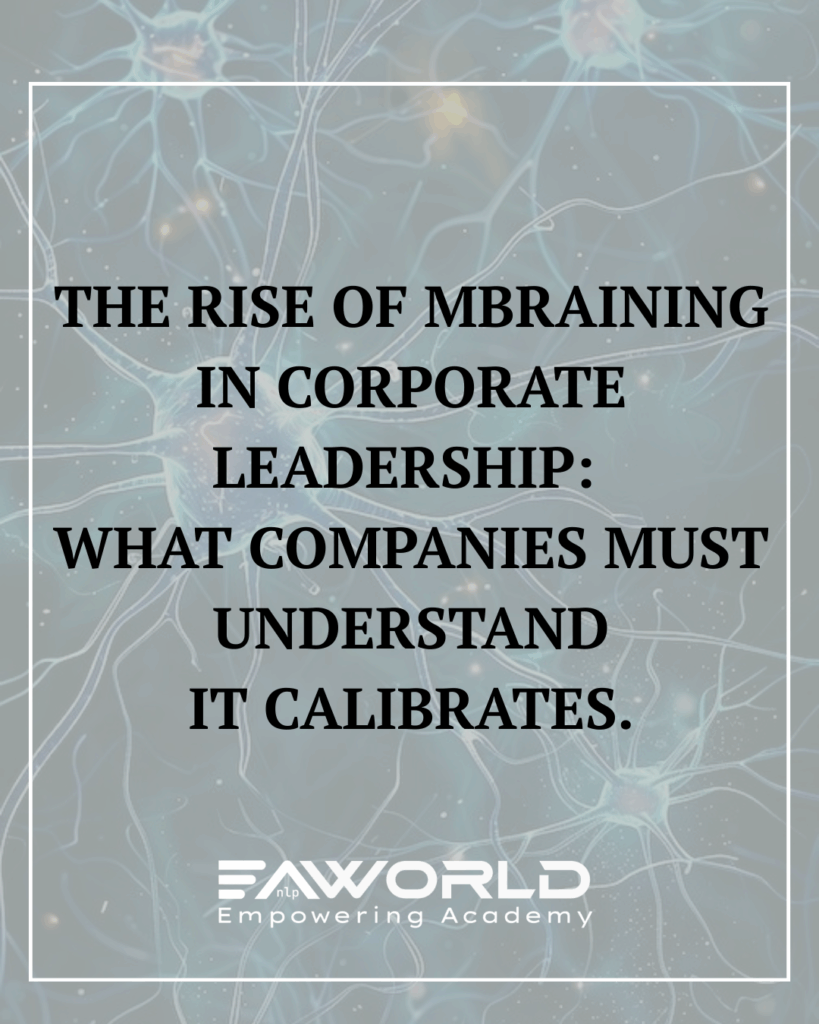
In today’s unpredictable and fast-moving business environment, traditional leadership models are no longer enough. Leaders are expected to make decisions that balance profit with purpose, navigate uncertainty with resilience, and inspire teams while fostering well-being. This is where mBraining, an emerging approach to leadership and personal development, is transforming the corporate world. mBraining, short for multiple braining, is the practice of aligning the head, heart, and gut “brains” to make more integrated and effective decisions. For companies focused on building adaptive, future-ready leaders, understanding mBraining is no longer optional—it’s becoming a competitive necessity.
What Is mBraining and Why Does It Matter for Business?
Unlike traditional leadership development models that focus primarily on cognitive intelligence, mBraining draws from neuroscience and behavioral psychology. Research shows that humans have three complex and functional neural networks:
- Head Brain (logic and analysis) – responsible for reasoning, planning, and strategy.
- Heart Brain (connection and values) – driving empathy, compassion, and emotional intelligence.
- Gut Brain (intuition and courage) – shaping risk-taking, decision-making, and resilience.
When leaders learn to align these three centers, they don’t just think about problems; they also feel the human impact and sense the right timing and risks. This integration leads to more holistic leadership—something organizations increasingly need as they face economic uncertainty, cultural shifts, and constant disruption.
The Corporate Value of mBraining in Leadership
Companies that integrate mBraining into executive training and coaching programs gain measurable advantages. Some of the key benefits include:
- Improved Decision-Making Under Pressure
Leaders who rely only on logic often miss key human and emotional factors in their decisions. By integrating all three “brains,” leaders make decisions that are not only smarter but also more sustainable. - Stronger Emotional Intelligence Across Teams
Heart-brain alignment enhances empathy, communication, and conflict resolution—skills that directly influence collaboration and retention. - Greater Resilience in Times of Change
Gut-brain alignment strengthens courage, adaptability, and risk management—qualities essential when navigating crises or transformation. - Culture Transformation at Scale
As executives shift to mBraining-based leadership, they create ripple effects that foster psychological safety, innovation, and trust across the organization.
How Companies Are Applying mBraining Today
Forward-thinking companies are embedding mBraining in leadership pipelines, executive coaching, and organizational development programs. Some practical applications include:
- Leadership Training Programs – Equipping executives with frameworks to align head, heart, and gut intelligence in daily decision-making.
- Team Coaching – Using mBraining techniques to improve communication, reduce silos, and foster collective intelligence.
- Change Management Initiatives – Guiding leaders to lead with clarity and compassion during mergers, restructuring, or digital transformation.
- Well-being and Performance Integration – Helping leaders recognize how emotional regulation and resilience drive both productivity and employee engagement.
Why Companies Must Understand mBraining Now
In the era of complexity, leadership effectiveness is not defined by IQ alone. Businesses need leaders who can balance data with empathy, intuition with courage, and vision with execution. mBraining provides a structured, research-backed framework to do just that.
For organizations investing in leadership development, mBraining is no longer an experimental tool—it is rapidly becoming a standard for building adaptive, emotionally intelligent, and resilient leaders. Companies that ignore it risk being left behind, while those that embrace it will be better positioned to thrive in the uncertain future.
The rise of mBraining in corporate leadership reflects a larger shift in how organizations view success. It is not only about efficiency and output, but about creating leaders who inspire, connect, and drive sustainable performance.
As businesses face the challenges of 2025 and beyond, mBraining represents more than just another leadership trend—it is a strategic necessity for cultivating executives who can navigate complexity with clarity, compassion, and courage.

